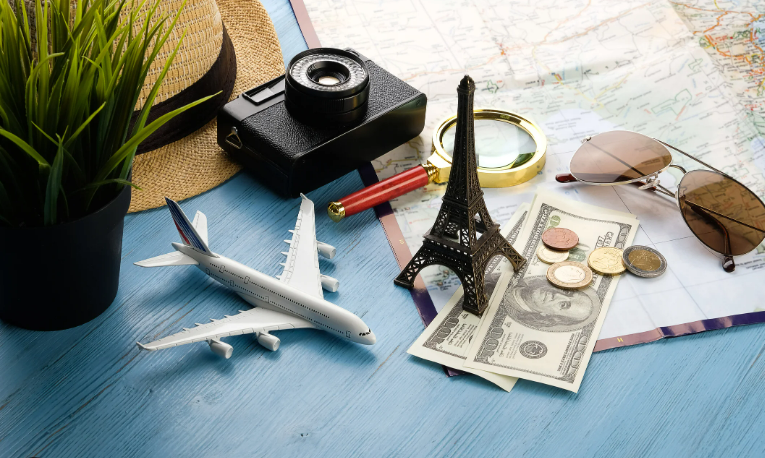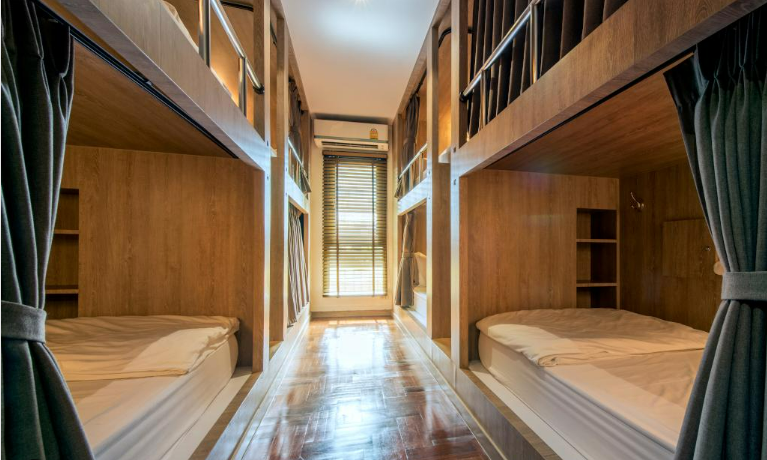
Seeing friends and influencers jet-setting to exotic destinations and luxurious hotels on social media might trigger some travel envy. However, many prefer to explore the world without emptying their wallets. By budgeting for your trip and seeking out clever ways to save money, you can feel more prepared and empowered to enjoy your vacation to the fullest.
With a bit of savvy planning and resourcefulness, you’ll soon be sharing stunning travel snapshots of your own adventures.
Create a Budget

The first and most crucial step in planning your trip is creating a budget. This sets the foundation for all your travel arrangements. Begin by assessing your personal finances to determine how much you can allocate to travel expenses. Then, divide your funds into three main categories:
- Preparation Expenses: These are costs incurred before your trip, such as passport fees, travel insurance, visa applications, vaccinations, and transportation to the airport.
- Actual Expenses: This category covers costs during your trip, including accommodation, activities, and meals.
- Emergency Funds: It’s essential to set aside some money for unexpected situations, like lost or stolen cash, or unforeseen expenses.
To stay organized, consider using spreadsheets to track your budget. Having a visual representation of your expenses allows you to identify areas where you can cut back or where you have flexibility to spend more.
Choose Cost-Effective Destinations

Begin the next step of your trip planning journey by selecting a handful of your favorite destinations. This initial selection serves as a foundation for managing your travel budget while allowing room to refine your choices based on your financial constraints and preferences.
For instance, if you envision a dreamy beach getaway, compile a list of potential coastal destinations. Then, explore which among them offer the most budget-friendly options and deals available. This approach helps streamline your decision-making process while ensuring your trip aligns with your financial goals.
Consider Staying Close to Home

Not everyone can afford to travel abroad, but there are plenty of ways to enjoy exploration closer to home. Many choose a staycation, discovering their own city or nearby areas as tourists do. This way, the budget can focus entirely on activities rather than transportation and lodging.
Other possibilities include embarking on a road trip, camping in a nearby national park, hiking adventures, joining local tours, discovering new beaches nearby, staying in hostels within reach of other cities, and visiting museums and art galleries. These options offer diverse experiences while keeping expenses manageable.
Identify Priorities and Big-Ticket Items

Maximize your vacation enjoyment by pinpointing your priorities. By incorporating essential activities or expenses into your budget and then aligning the rest of your costs accordingly, you ensure that you’re spending your money exactly where it matters most without sacrificing the best experiences.
For some, comfort is key, and they prefer luxurious accommodations, while others are content with budget-friendly hostels, choosing to splurge on unforgettable experiences. For instance, if you’re headed to Costa Rica, would you rather invest in upscale lodging or allocate your funds towards a scuba diving adventure? Are you more inclined to spend on mementos or savor unique dining experiences? Asking yourself such questions helps clarify your priorities and guide your spending accordingly.
Plan Ahead

Start your trip planning process as early as possible to secure the best deals. Prices for transportation, accommodations, and activities tend to rise as the travel dates approach, so initiating your search ahead of time increases the chances of finding more affordable rates.
Moreover, early planning minimizes travel-related stress down the road. Set specific days for activities, reserve tickets and tours, arrange transportation, and make accommodation bookings. It’s also essential to allocate downtime between major outings to unwind and recharge from your busy itinerary.
Travel During Off-Season

Traveling during the off-season offers significant savings, with accommodations and activities typically available at lower rates. Tourist destinations often raise prices during peak seasons but are keen to attract visitors during slower periods, leading to more affordable options. This flexibility allows for easier last-minute bookings and itinerary adjustments.
Moreover, traveling off-season means encountering fewer crowds, resulting in reduced stress and more opportunities to engage with locals for insider tips on exploring the area. It’s essential to note that off-season times vary depending on the destination. While tropical locations are bustling in winter, family-friendly spots experience peak crowds during spring break and summer vacations.
Sign Up for Travel Rewards

Travel rewards credit cards offer points, miles, and cashback for both travel and everyday purchases, which can be redeemed for various travel expenses like flights and hotel accommodations. While many of these cards require excellent credit scores and come with annual fees, they provide opportunities for frequent travelers to accumulate miles or points with every dollar spent.
Branded airline and hotel credit cards are tailored to reward brand loyalty. Airline credit cards typically offer miles for a specific airline and often include additional perks like priority boarding, lounge access, or complimentary checked bags. Similarly, hotel credit cards offer benefits such as free stays or room upgrades to cardholders who prefer staying at specific hotel chains.
Research Flights

Finding affordable flights is crucial for budget travelers. While flights are typically cheaper during the off-season, the day you book and the day you travel can also affect prices. Weekdays generally offer lower fares, but weekends often feature the best deals for purchasing tickets.
To avoid price hikes caused by tracking cookies, consider browsing for flights in incognito mode. This prevents airlines and booking sites from monitoring your search history and potentially increasing prices based on repeated searches. Additionally, keep an eye out for airline coupon codes, which can provide further discounts on your flights.
Use Travel Search Engines To Find Deals

Utilize various websites and search engines to discover deals on flights, accommodations, car rentals, and entertainment options for your trip. Some useful resources include:
- Flights: Skyscanner, FlightHub, and Momondo
- Hotels: Tripadvisor, Trivago, and Kayak
- Activities and entertainment: Musement, Klook, and Tourteller
While it’s wise to set your budget and prioritize locations beforehand, exploring travel search engine sites can unveil unexpected deals. Stay flexible with your travel plans and remain open to opportunities for discounted destinations and activities that you may not have initially considered.
Consider Other Forms of Accommodation

Hotels have long been the go-to choice for accommodations while traveling, but they might not always be the most budget-friendly option. Exploring alternatives to hotels can help you save money and provide unique travel experiences.
Consider these alternatives:
- Rental properties: Websites like Airbnb and Vrbo connect travelers with homeowners who rent out their properties. You can find anything from a shared room to an entire house, often at discounted rates for longer stays.
- Hostels: Hostels offer budget-friendly accommodations where you’ll typically share amenities with fellow travelers. They provide an excellent opportunity to meet new people from around the world and connect with locals.
- Couch-surfing: While it may not be as predictable as other options, couch-surfing can be a nearly cost-free way to find accommodation. Platforms like Couchsurfing connect travelers with homeowners willing to offer a spare bed or couch for free.
Save Up

For some, booking travel with a credit card and paying later may seem convenient, but it can lead to accumulating unnecessary interest charges and increasing overall travel expenses.
Setting a budget early provides a clear financial target to aim for. Instead of relying on credit cards, saving up for travel expenses in advance is a smarter approach.
Achieving your savings goal may require cutting back on unnecessary expenses or taking on extra work. If you find it challenging to stay motivated, keep reminding yourself of the joy and excitement you’ll experience during your trip.
Look for Inexpensive Entertainment

If your budget is tight after covering big-ticket items, explore inexpensive or free entertainment options available at your destination. Local hospitality workers and vacation rental hosts often have insider knowledge about unique events like live music performances or social gatherings.
Traveling with a group? Consider leveraging group booking discounts, typically around 15%, on activities such as tours, museum visits, and classes, as well as flights and accommodations. Contact airlines, hotels, and attractions directly to inquire about these savings.
